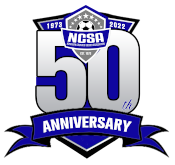"If there is one single variable I can isolate as a predictor of success (beyond obviously a base level of talent and ability in the child), it is how negative and critical the parents are. The more intrusively involved, the more pressure, and the more critical the parents are, the higher the likelihood the kid will stop enjoying the game, start to fail to perform, burn out, and then quit – exactly what the parents don’t want!"
-- Kazbek Tambi
New Jersey-born Kaz Tambi captained Columbia, won four Ivy League championships, and reached the NCAA Division final four. He made the 1984 U.S. Olympic team and that year debuted, at age 22, for a star-studded New York Cosmos team that included World Cup runner-up Johan Neeskens.
On the eve of his Cosmos debut -- Coach Eddie Firmani had given him advance notice -- Tambi convinced his parents to come to Giants Stadium.
Before that day, Tambi’s parents played no part in his soccer life.
Kaz’s parents were World War II refugees from Russia who both worked second-shift factory jobs as machine operators in New Jersey and worked overtime on weekends when Kaz’s games took place. While not at the factory, they toiled to repair the dilapidated house they bought in Ridgewood after leaving Paterson.
“Setting aside time for my soccer was a luxury they couldn’t afford,” says Tambi, who spent all his free time during his youth playing pickup soccer at a park within bicycle distance, playing on his own; or finding creative ways to get to other settings to watch or play soccer."Kaz Tambi won four Ivy League titles with Columbia University.
“As important as soccer was to me, they never watched me play or asked about soccer; we never talked about it at all," says Tambi. "Later in life, especially when I became a parent myself, I realized that was not by choice but was out of necessity. The priority for them was to provide for us: put food on the table and clothes on our backs in a livable house in a decent neighborhood. For them, as young immigrants after the war, it was a heroic burden to shoulder, and they have all my respect for succeeding.”
But they did make it to his Cosmos debut.
“I played that game fairly well, I thought, for my first time starting as a pro,” he said. “After the game, I sat down on the couch in the family room relaxing with my parents, feeling happy about the game.
“As we sat on that couch I noticed my mom didn’t look happy. We chatted amiably, but I could tell something was on her mind, and she looked a little stressed. Then I understood why she looked grim. She said that she thought I should be dribbling the ball more, passing less, and pushing up the field faster. I listened quietly and nodded, because I respect and love my mom. But it started dawning on me how lucky I had been all these years.
“I remember saying to myself, as she was telling me where and when to pass the ball -- a ball I’d been kicking very successfully for over a decade completely on my own -- ‘Thank God Mom was not a part of my soccer world growing up, because there is no way I would have gotten here if she were.’”
• • •
Tambi, who practiced law after his playing career in the NASL, ASL and MISL, is the Director of Coaching for the New York City FC Girls Academy. He has been coaching for more than two decades, at the college and youth level, and has served as U.S. U-15 and U-17 girls national team coach, leading the U-17s to a runner-up finish at the 2008 World Cup.
He coached Morgan Brian, Crystal Dunn, Lindsey Horan, Sam Mewis, Abby Dahlkemper, Casey Short and Taylor Smith.
Alums from the New York/New Jersey club World Club FC, where he has served as a coach and director, include Alecko Eskandarian, Jason Hernandez, Dilly Duka, Danny Szetela, Yael Averbuch and Amber Brooks.
• • •
Tambi jokes that his mom may have been right about pushing up the field faster.
But he also says:
“Had my parents been overly involved like many parents are today, had they been intruding on my joy for the game with their daily critique of my play (even if they were right), there is no way I would have enjoyed the game as much as I did growing up. ... I learned the game and improved in the best possible way. Through trial and error. Through having the freedom to be creative and make mistakes, and not have to worry about my parents’ approval.”
Tambi, a father of three, appreciates how important the parents’ support is in today’s youth soccer environment. But he also believes that a key ingredient to producing world-class players -- or at least getting the most out of each player’s potential -- is to reduce the adult influence.
“We want the parent’s role only to be supportive and encouraging,” Tambi says about the message sent at NYCFC. “As just one simple example among many, we discourage parents from watching their kids practice up-close on the sidelines, or even in the bleachers.”
Kaz Tambi's Practice Advice for Parents:
• If you are watching practice too closely, you will start to see mistakes and problems, and then almost inevitably you will start to talk about them. This often happens on the ride home from practice, when parents too often say negative things like, “you don’t look like you were focused and you need to be more aggressive” or “you’re not trying hard enough.” This changes your role from the supportive and encouraging parent to one who’s negative and critical.
It’s the coach’s job to monitor and correct these things, or sometimes make the judgment to ignore them for the time being, not yours. Sometimes it’s better not to know.
It might be better for you not to know that your child isn’t always attentive to the coach or isn’t always trying as hard as you think he should. Because when you know these things, your disapproval, and the stress it causes you, will inevitably get expressed. Your child needs your support, not your stress.
• When you’re too physically prominent when he practices, it distracts your child from his coaches and teammates. Your child should be playing for his coach and his teammates, not for you. If you are too present, it can inhibit the natural growth of important team bonding and relationships: you become the center of gravity, not the team. We have to give our kids the room to develop their own commitment to the team and to soccer from within themselves, and from within the team environment, not imposed by you from the outside. Your child’s commitment will be much more durable if it comes from within himself.
• If we make our kids’ activities too central to our adult lives, we are sending them the message that our own happiness is in part contingent on their success. That inverts the natural order of a healthy parent-child relationship, turning it upside down, and the kids can feel the weight of that. Many parents know this deep down inside, but still can’t help themselves from over-identifying with their kids’ soccer success. But they should try hard to resist the urge if they care about that success. Because in my experience, over-the-top parental involvement almost always backfires.
Kaz Tambi's Game Day Advice for Parents:
• On the car ride to game: Avoid giving advice or coaching tips to the child relating to the upcoming game. This will only serve to prematurely induce stress and anxiety. Instead, as it is good to stimulate the mental juices prior to a competition (rather than having the child sleeping or vegetating in the car), a parent should engage in a conversation with the child on a topic that the player will enjoy. Or in the alternative, the parent can challenge the child with a verbal quiz or game, which should be fun and again cover a topic of interest for the child.
• Never say anything critical about other players in front of your child. It’s all too likely your child will internalize that opinion and express it in one way or another to his teammates, or even to that player directly, and you have thereby set off an ugly sequence of gossip that will inevitably lead back negatively to your kid. It will also negatively affect team bonding, which is critical for team success.
• If you are standing with a group of parents and they are criticizing the coach or other players’ play, walk away. It’s a terrible habit, and again, one way or another, your child and his team will eventually be affected by these negative -- and irrelevant -- parental opinions.
• Never criticize the refereeing. It’s an awful habit to model for your children. They should be focusing on playing as well and hard as he can, and on having as much fun with their friends as possible. The ref is completely out of the player's control and so your child, and you, should ignore it. Nothing good ever comes from a parent vocally criticizing a referee, so why would you do it?
• You have two choices during a game: cheer for the whole team, including but not exclusively for your child. Or stay silent. Never say anything negative out loud during a game, even if you think you’re being helpful or constructive, about your kid, your team (or in fact the other team). No good will ever come of it. Most intelligent parents know this deep down, but too many can’t seem to control themselves. Learn to control yourself.
• If you cheer for your kid and his team when they are playing well, you have to be consistent and cheer for them when they are not. If you are obviously silent when you are otherwise typically vocal, your child will hear the silence as the silent critique that it is.
• One simple change can go a long way in helping kids (and therefore their parents) have a healthier and more successful athletic experience. After the game, never say anything negative. Be only supportive and encouraging. Let the coaches coach, and the teammates create the team’s soccer norms and expectation for performance – not you.
• The car ride home from the game is where parents most often make mistakes. Your child will generally quickly get over what happened in the game and will move on to think about dinner, homework, a playdate, or, alas, a video game. You should move on, too! Be positive and encouraging, and then quickly move on to another subject. Your child will start to dread the ride home, and eventually therefore dread soccer, if they know they will be subjected to a withering critique from you while they are trapped in the back seat. He played the game, you didn’t. Drive the car. Talk about the pizza you’re going to order. Move on.
• • •
Tambi’s advice reminds me of what Ferenc Puskas, the legendary Hungary and Real Madrid forward, once said:
"I am grateful to my father for all the coaching that he did not give me."


